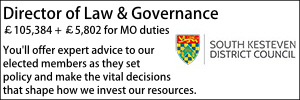MPs call for consolidation of electoral law, warn “fabric may not hold” in next elections
There is a clear consensus around the "necessity and benefits" consolidating electoral law, a new report by the Public Administration and Constitutional Affairs Committee (PACAC) has said.
- Details
The Parliamentary committee also raised serious concerns about the potential for "things to go wrong" in upcoming elections, adding that the "fabric may not hold" if a future election result is close, given increasing pressures on the system.
On the state of electoral law, the report voiced concern that the Government does not believe there is a need for reform, despite there being consensus in the committee's evidence that changes should be made.
It called on the Government to make its position clear, adding: "We do appreciate the Government's point that the consolidation and simplification of electoral laws may take some time, but this only strengthens the case for putting the process in motion, and for a clear commitment for consolidating legislation to be introduced once the process is complete."
Elsewhere, the report voiced concern that there is no uniform process prescribed for counting the votes at an election, adding that candidates should be confident that votes are counted and checked in the same way in every constituency.
"While there are historic reasons why different systems have developed and been maintained, the case for streamlining, standardising, and making these electoral systems consistent is now compelling," the report said.
It called on the Government to create a single system for how counts should be conducted and a single electoral register, with functions for local authorities to access local data to access local rates of registration.
It also said there should be a single or integrated digital platform and system for electoral administration.
On postal voting, the report said that better information should be provided to people about the timescales involved and dispatching postal ballots on a rolling basis rather than in two batches. The reissuing of postal ballots earlier than the currently proscribed 4 days before an election, and the ability to change your method of voting from postal voting to in-person or proxy, were also recommended.
The committee meanwhile added that it is concerned that the evidence base for the necessity and effectiveness of voter ID - a requirement introduced under the Elections Act 2022 - "is simply not there".
It called on the Government to set out its criteria for assessing the acceptability of impact of the policy on turnout, after highlighting figures that showed 16,000 people were prevented from voting at the 2024 election due to voter ID.
The committee also highlighted anxieties among electoral administrators, regarding recruiting and retaining staff; securing suitable locations for polling stations and counts; implementation of new requirements and technologies; the dependence on an increasingly small number of external suppliers; and the funding and resourcing of elections.
It recommended that the Government produce an annual report assessing the readiness for elections, in order to better understand the pressures facing administrators.
Changes brought in by the Elections Act 2022 also added to the workload for electoral administrators, according to the report.
"For example, the greater use of online portals while providing new and necessary ways for people to engage with the electoral system, has considerably increased the workload for electoral administrators and others," the report said.
"It appears to us that these advancements have only gone part of the way, and that greater use needs to be made of advancement in technology and in use of date."
Chair of the Public Administration and Constitutional Affairs Committee, Simon Hoare MP, said: "The 2024 General Election was a success but we must not be complacent. I am extremely grateful for all the dedication and hard work carried out by the electoral staff, administrators, civil servants and ministers. The work they do is vital for upholding our democratic system.
"With that being said, our electoral system is at risk of no longer being able to cope as those running our elections are asked to do more and more."
He added: "The Government must face up to these issues and ensure we continue to have successful elections in the future. If it does not, the price will be a crisis in our democratic system and that must be avoided."
Adam Carey
Police Misconduct & Vetting Solicitor
Locums
Poll
15-09-2025 10:00 am
08-10-2025 10:00 am








